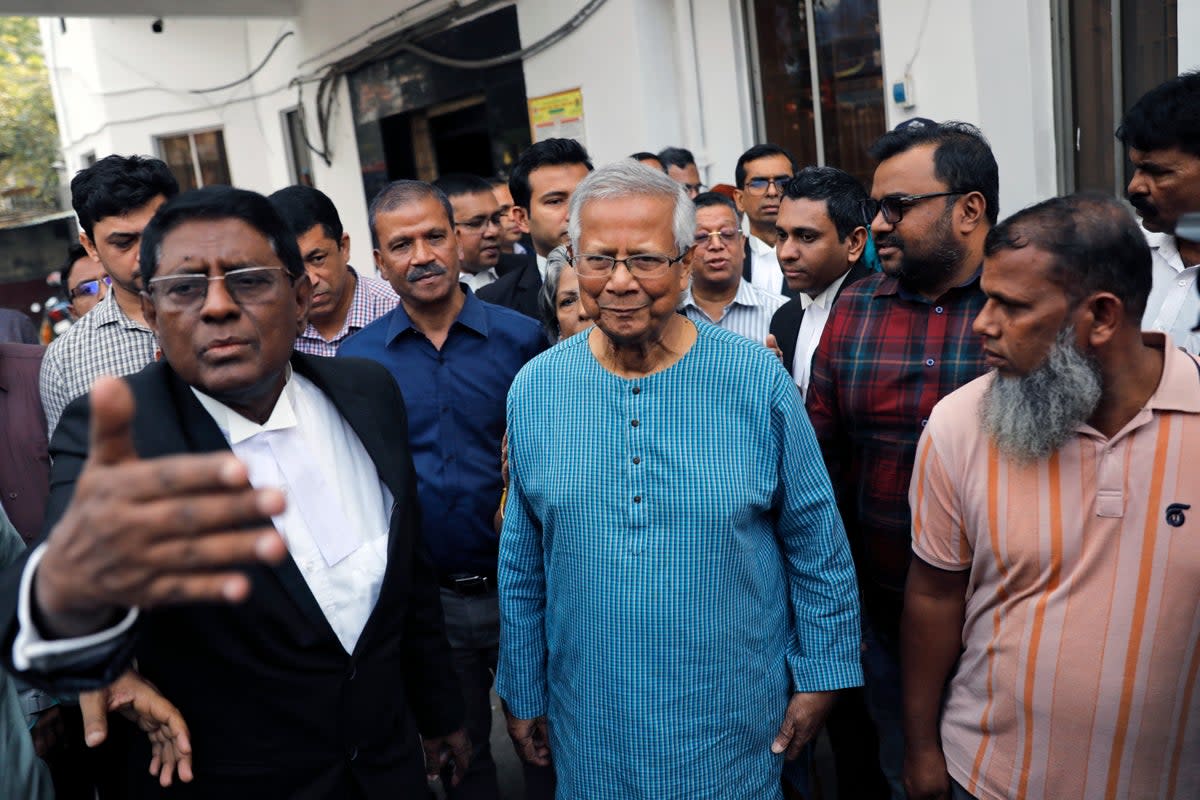Sheikh Hasina has turned Bangladesh into one-party state, says Nobel Peace Prize laureate

Bangladesh has become a "one-party state” due to the Sheikh Hasina government’s efforts to stamp out the political opposition, Nobel Peace Prize laureate Muhammad Yunus has said.
Mr Yunus was indicted along with 13 other people in a £1.6m embezzlement case by a court in the capital Dhaka on Wednesday.
Mr Yunus, 83, and his fellow accused have pleaded not guilty to the charges.
"Bangladesh doesn't have any politics left," Mr Yunus, who pioneered the global microcredit movement and won the Nobel in 2006, told Reuters.
“There's only one party which is active and occupies everything, does everything, gets to the elections in their way. They get their people elected in many different forms – proper candidates, dummy candidates, independent candidates – but all from the same party."
Ms Hasina was elected prime minister for a fourth straight term in January, in an election which was boycotted by the main opposition party after senior members of its leadership were either jailed or forced into exile before polling began.
Her Awami League party, which fought for Bangladesh’s independence from Pakistan, is now being accused of leading the South Asian country towards autocracy by imposing sweeping laws and suffocating dissent through arbitrary detentions.
It has also drawn condemnation from abroad, with the US accusing Ms Hasina’s government of “undermining the democratic election process”.
Mr Yunus, who helped lift millions out of poverty by giving tiny loans of less than £80 to the rural poor, angered Ms Hasina with a 2007 plan to set up a political party.
Since then he has faced multiple charges, as well as incarcerations, with the latest coming just days before the election in May when he was jailed over alleged labour law violations.
Mr Yunus faces over 100 cases in all, which he has dismissed as "very flimsy, made-up stories".
Last year, more than 170 global leaders and Nobel laureates urged Ms Hasina to suspend legal proceedings against Mr Yunus.
The government has denied the proceedings against Mr Yunus are linked to his frosty relationship with the prime minister.
Ms Hasina called Mr Yunus a “bloodsucker” of the poor in 2011.
Bangladesh’s law minister Anisul Huq said that he disagrees with Mr Yunus's remarks about the government, calling them an "insult" to the people of the country. "Democracy is fully functional in this country," he added.
Mr Huq also denied that the accusations levelled against the activist are false. "He has gone to the highest court of the country which found there was a case against him."
"Is it a crime for a citizen to try to make a political party?" Mr Yunus asked, saying he dropped the idea within 10 weeks after realising he was not suited to politics.
"Restarting will be very painful because we have brought it to a point where it has completely disappeared," he added.


